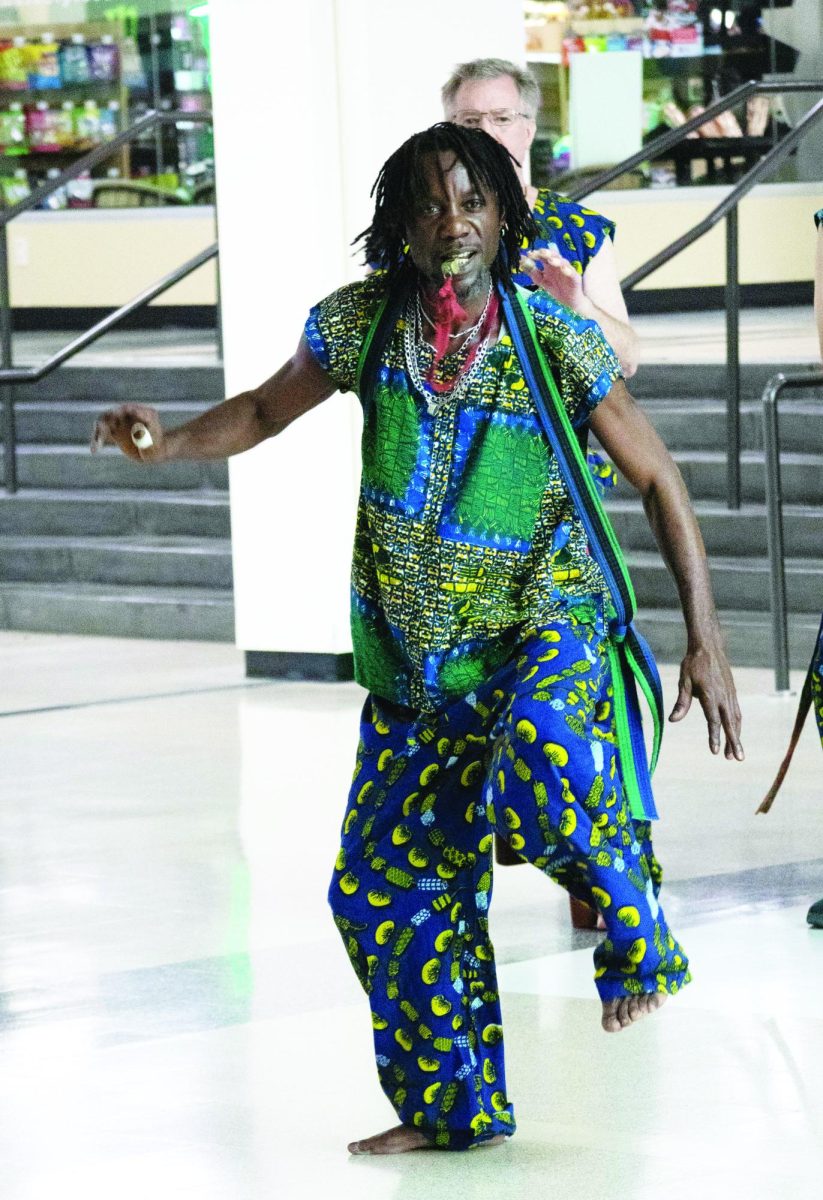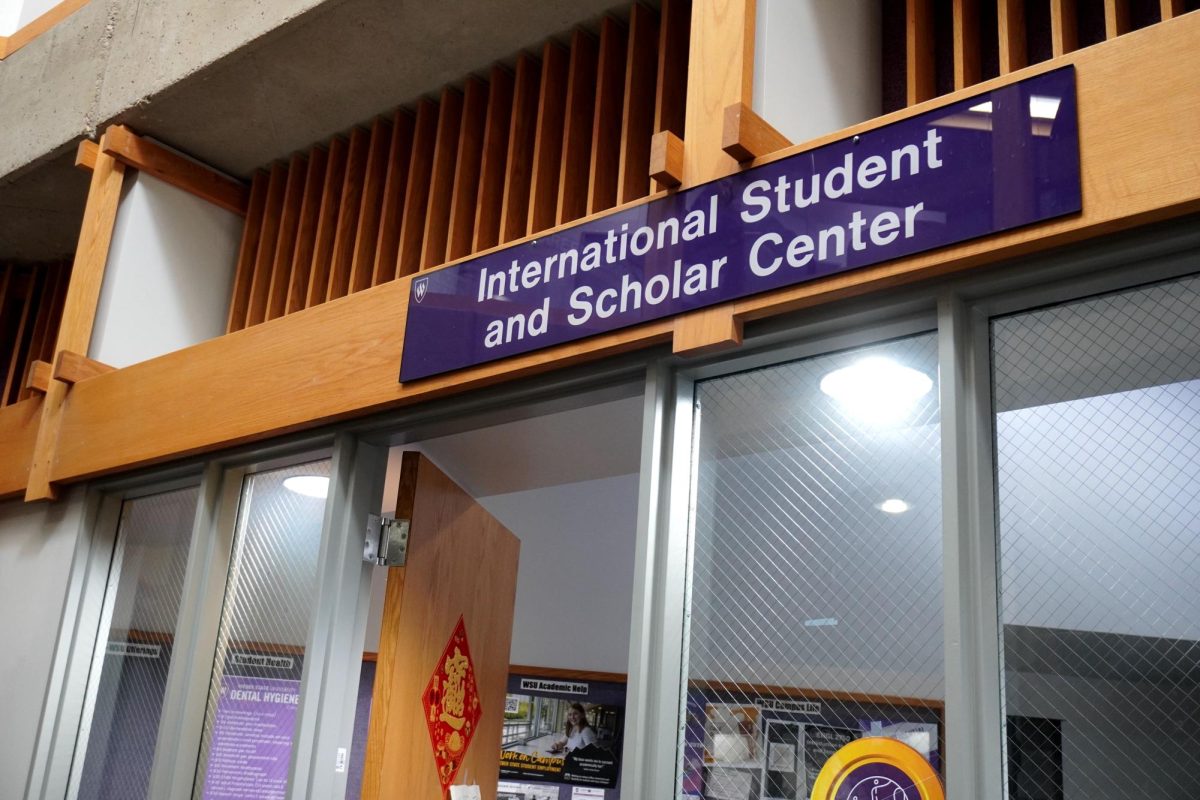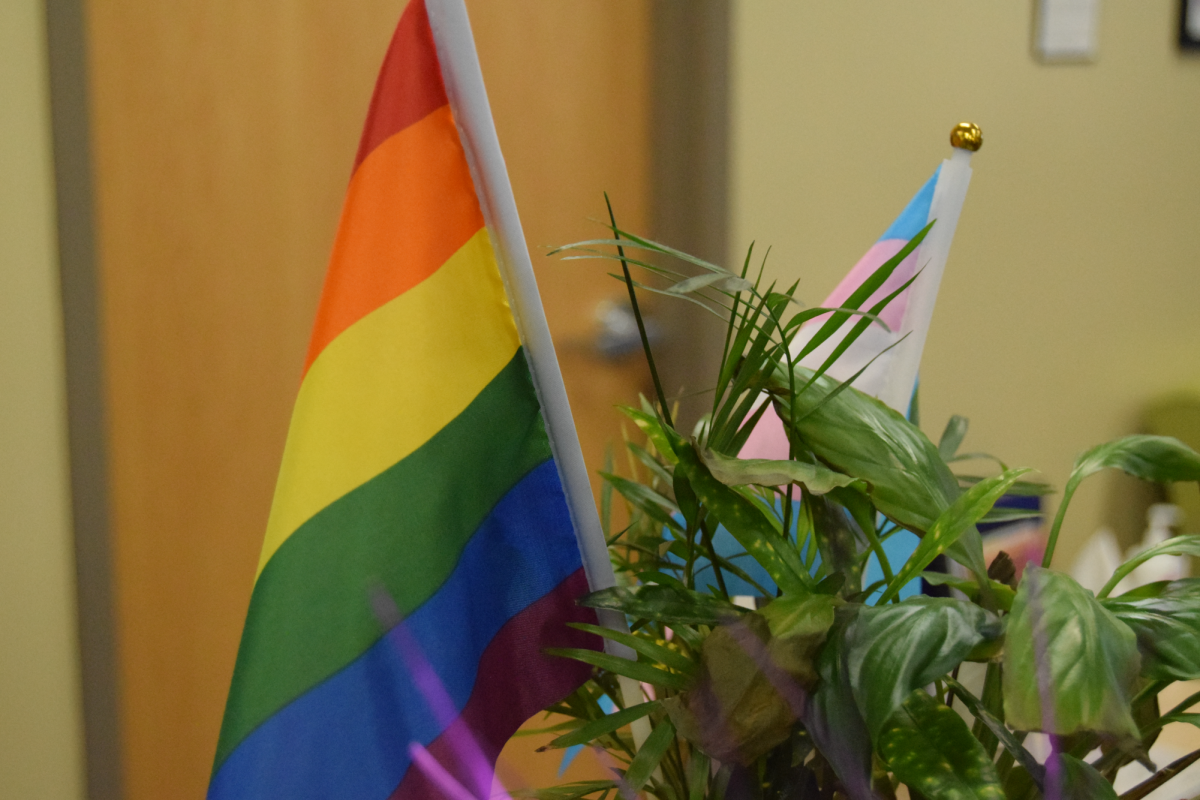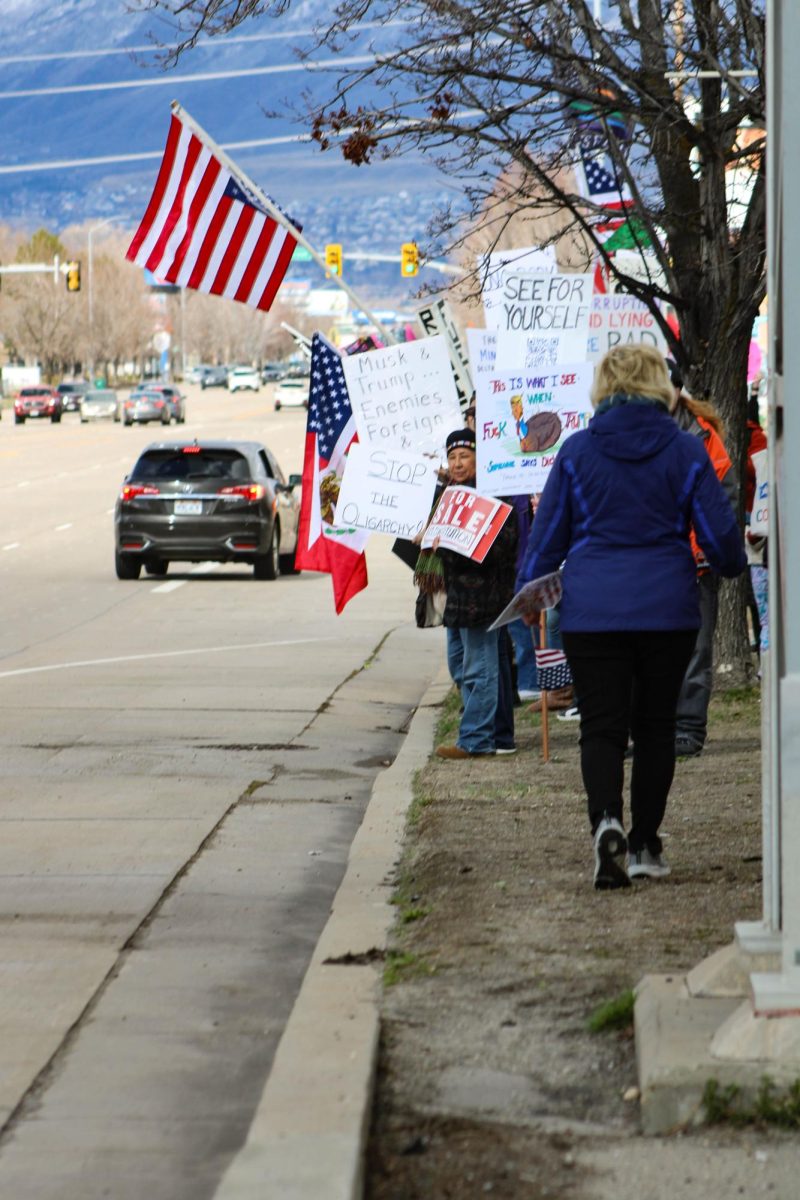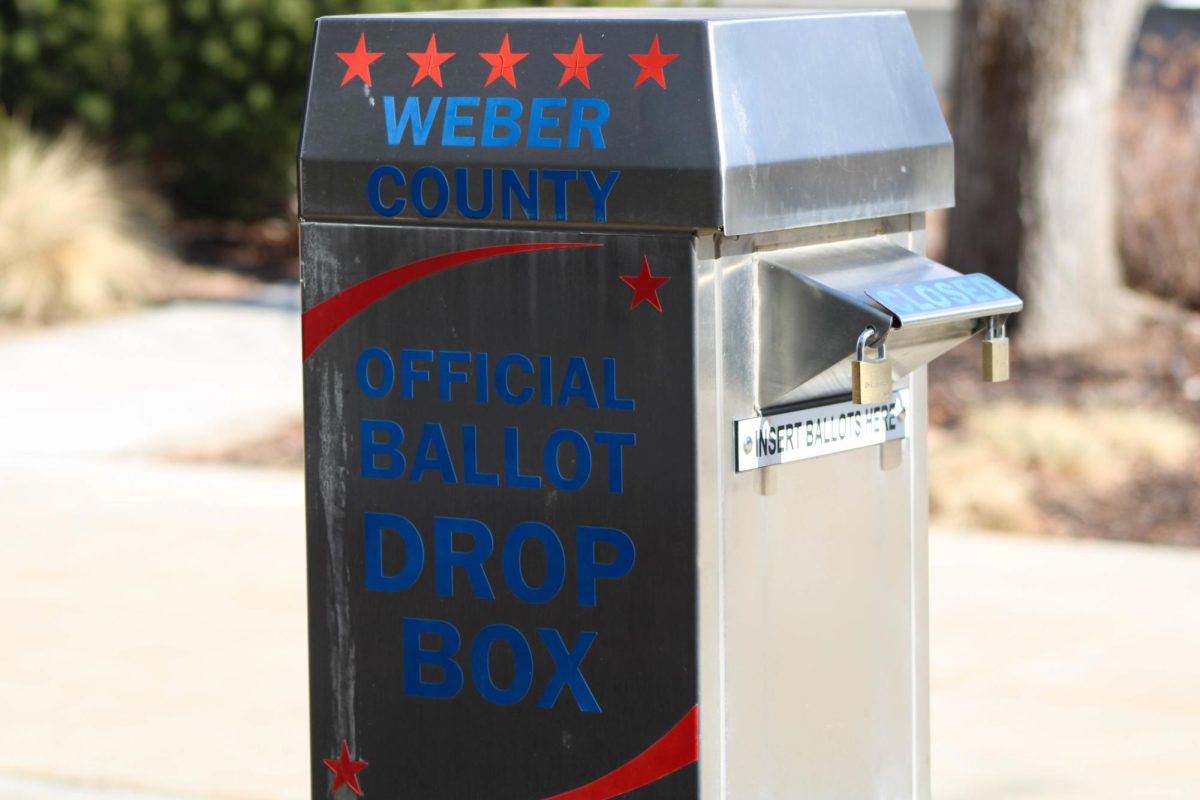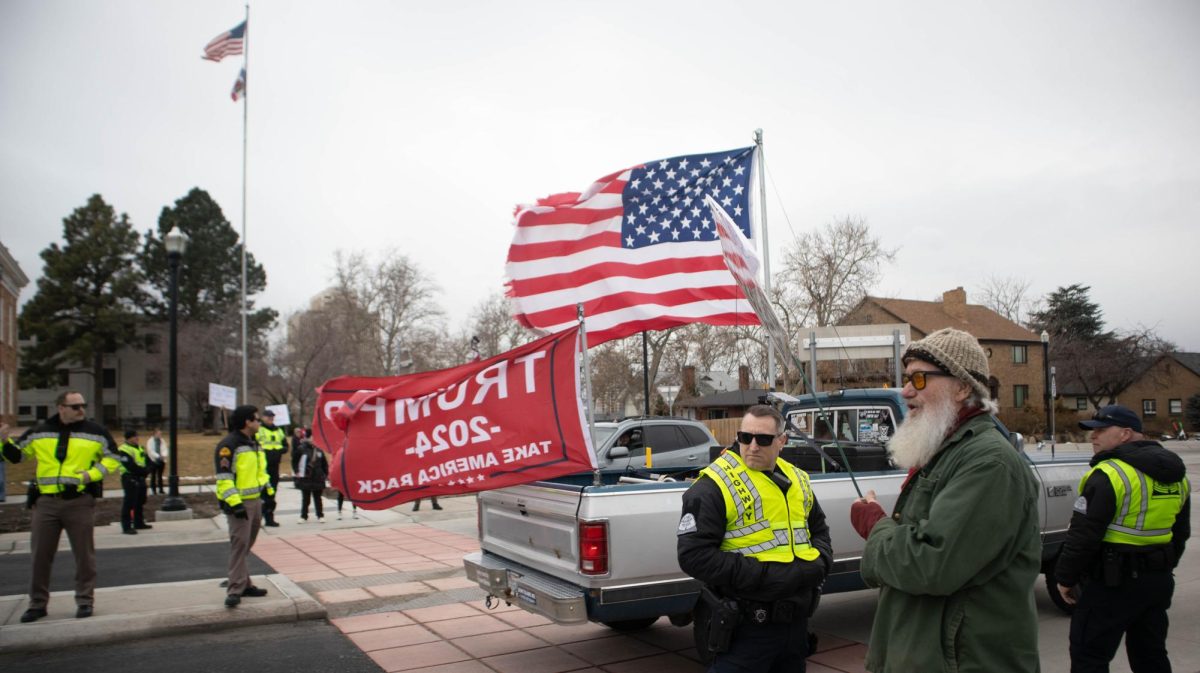Weber State’s MEChA — Movimiento Estudiantil Chicanx de Aztlán — members gathered at the Shepherd Union Atrium for a silent demonstration against ICE policies and to bring awareness to family separations at the U.S.-Mexico border.

The demonstration, held on Nov. 20, was a way for MEChA members to show that they have not forgotten about families and children who are currently suffering under border patrol custody.
Some people told MEChA members that they should not go through with the demonstration due to safety reasons and the current political climate. Before the demonstration, students were debriefed on what to do if someone incited violence.
“Sometimes silence has bigger voice than someone yelling in your face,” said Nubia Gutierrez, a WSU student and event demonstrator.
Students wore masks on their faces with an “X” in the middle to state that they are not there to yell. The masks represented the children and families at detention camps that are being silenced.

Sofía Garza, a member of MEChA, said the idea for the presentation came during a meeting. Garza said WSU has brought various government agencies to campus, one of them being border patrol.
“We felt very uncomfortable with that, especially with all of the promises this institution had made regarding the safety of undocumented and documented students,” Garza said.
Gutierrez, one of the MEChA presidents, began to show interest in political science during her junior high years. It was then she knew she wanted to be a part of a non-profit for immigrants, particularly because her parents are immigrants.
Gutierrez’s parents were activists in El Salvador, helping the poor and sick through battle. Their activism landed them on a hit-list, forcing Gutierrez’s parents to flee. Her family’s history sparked an interest in Gutierrez to help others, saying she feels privileged.
With a continuous news cycle filled with shootings, environmental catastrophes and politics, Gutierrez wanted the MEChA demonstration to remind people about the families and children at the border.
Individuals passing the Union Atrium often stopped and stared at the silent demonstration. Others photographed the demonstration and read the signs MEChA students made.
“While we’re sitting there — the discomfort sitting, people staring, the hurt behind our legs and backs, the pain of just sitting there in silence — it’s not even one percent of how the children felt,” Gutierrez said.
Along with Gutierrez, Christian Phomsouvanh shares similar interests behind the demonstration’s importance. Phomsouvanh comes from a family of refugees from Laos, a Southeast Asian country. Phomsouvanh said a silent protest is educational in an appropriate manner.
“Here in WSU it’s a predominately Caucasian campus, and it’s a sensitive topic because when people say things like ‘I drink my water warm because f**k ICE,’ they get uncomfortable because it’s not affecting them; they don’t care about it,” Phomsouvanh said. “For them to see activism rise, it makes them uncomfortable.”
Protest signs used during the demonstration included photos of children at the border. These children, according to Gutierrez, have passed away in detention camps in the last 3 years because of inhumane living conditions and treatment.
Gutierrez said the style of the demonstration allowed anyone to participate.
“I hope to inspire people. This time was a silent demonstration, that means introverts can come. A big demonstration, that means extroverts will be the main ones there,” Gutierrez said. “It’s allowing people to see that there are so many ways to show your voice.”






